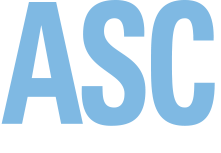Adapting the Delivery of Extension Services
Sea Grant outreach activities are far and away not the only events to be affected by the new coronavirus as public health officials have advised against in-person interaction.
Pre-pandemic, Sea Grant’s specialists would be fanned out across the state meeting with local officials, delivering presentations and consulting with businesses. Now, they are pivoting to new ways to serve stakeholders and connect with collaborators to meet coastal needs.
The staff has weekly meetings and the topic of how best to provide service while working remotely is always discussed given it’s unclear when past practices will again become possible.
They are also discussing whether past practices can be adapted, such as participating in small gatherings, perhaps one-on-one, and fol- lowing now-familiar behaviors like distancing, wearing face masks and attuning to the emergence of any symptoms before and after
a meeting. Activities like meeting with a marina operator in an out- door setting or with a single volunteer working on controlling aquatic invasive species at the side of a stream would be undertaken with great care and with approval from university administrators.
In the meantime, specialists are offering virtual presentations to share know-how. Some archived examples include:
Water Quality Specialist Julia Noordyk said she has heard from numerous people that a presentation about the history of Green Bay, actually recorded before the emergence of COVID-19, has been informative.
Fisheries SpecialistTitus Seilheimer hosted a meeting of the Lake Michigan Fisheries Forum.
Climate and Tourism Specialist Natalie Chin organized a meeting about Lake Superior resiliency.



